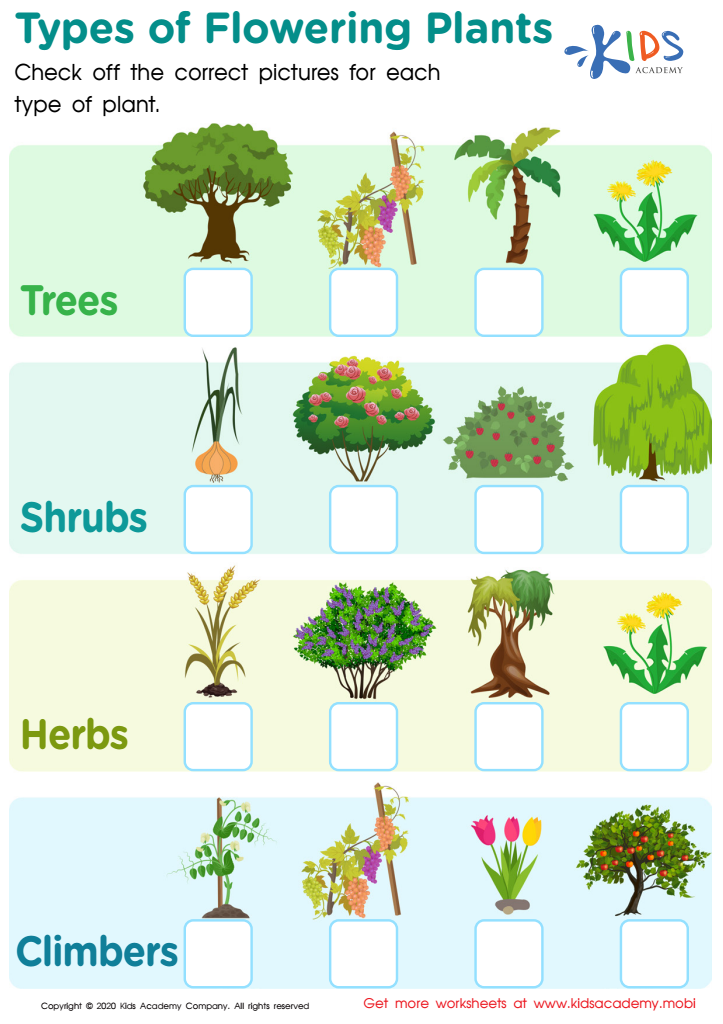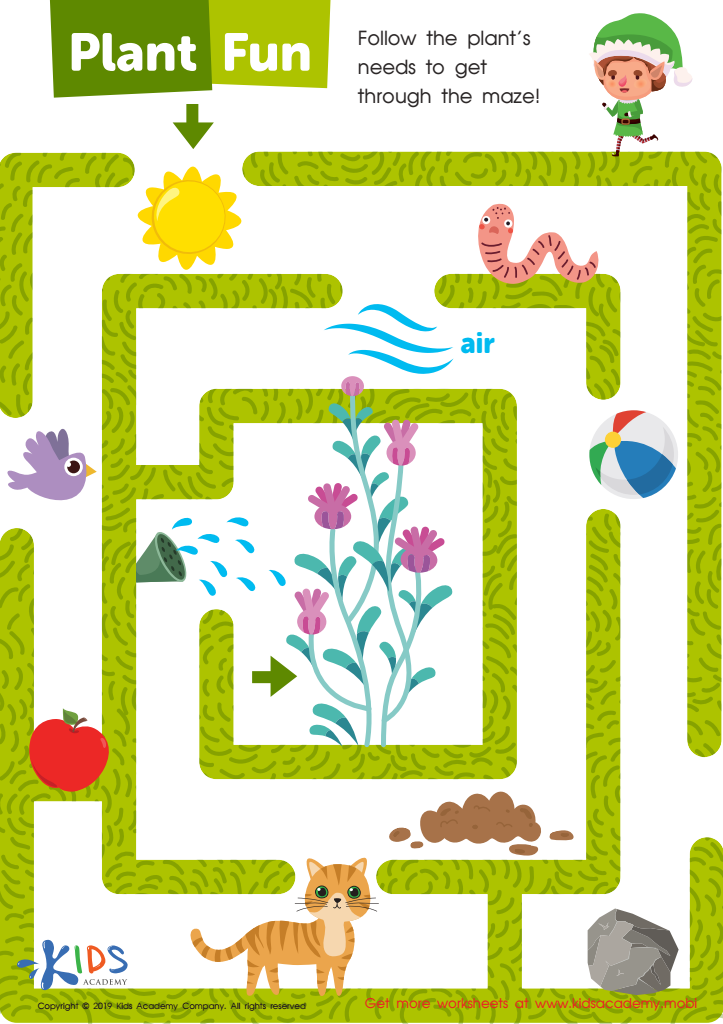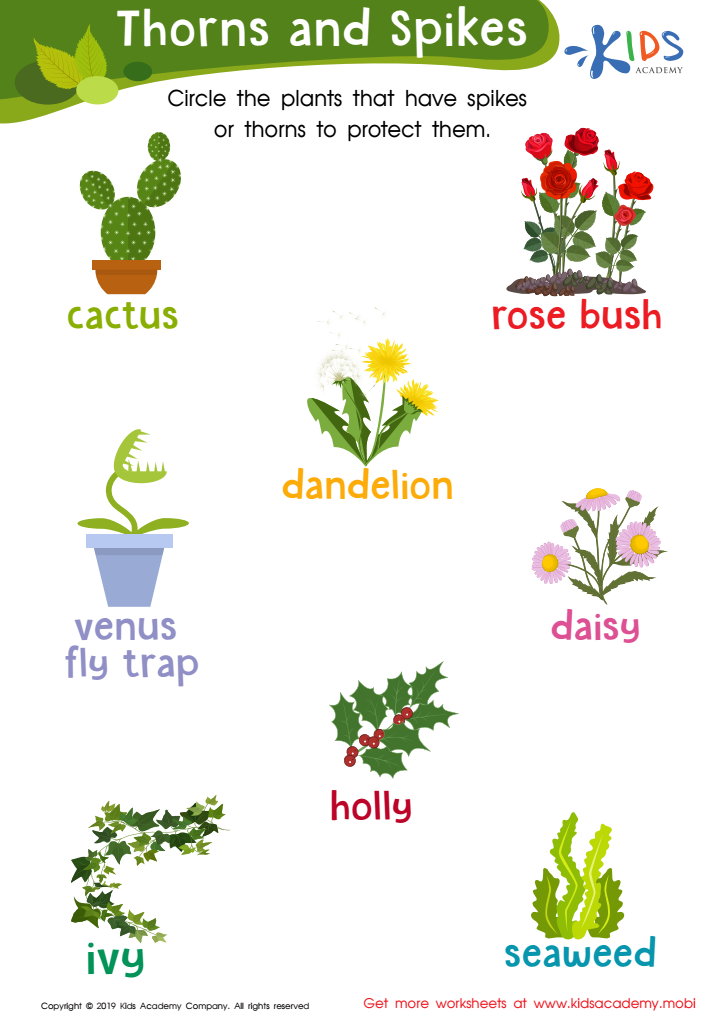Plant identification Normal Science Worksheets for Ages 3-7
4 filtered results
-
From - To
Introduce your little botanist to the wonders of nature with our "Plant Identification Normal Science Worksheets" designed for ages 3-7. These engaging and educational worksheets enhance children’s recognition skills and scientific curiosity. Through colorful illustrations and interactive exercises, kids will learn to identify different plants, understand their parts, and explore the basic concepts of botany. Perfect for classroom activities or homeschooling, these worksheets are tailored to support early learning and development. Nurture young minds with hands-on activities that make science fun and accessible. Discover a world of plants and spark a lifelong love for nature today!


Types of Flowering Plants Worksheet


Plant Fun Worksheet


Thorns and Spikes Worksheet


What Do Plants Need to Grow Worksheet
Plant identification and normal science for young children, ages 3-7, is vitally important for building a foundational love for nature and science. Early exposure helps cultivate curiosity, critical thinking, and environmental stewardship from a tender age. Introducing children to plant identification enables them to recognize and name different plants, fostering a deeper connection to their natural surroundings.
Understanding the basics of botany enhances sensory development as children explore textures, colors, shapes, and smells, enriching their sensory experiences. Such activities also support language development through the introduction of new vocabulary and encourage descriptive communication.
Furthermore, these early science activities promote fine and gross motor skills through hands-on experiences like planting seeds, watering plants, or touching leaves. These activities teach responsibility and patience as children observe the growth process and understand the role they play in nurturing life.
Knowledge of plants lays the groundwork for scientific learning. Children begin to grasp the scientific method by making observations, asking questions, forming hypotheses, and witnessing outcomes. Educators and parents who champion plant identification provide children with the tools to appreciate biodiversity and develop an early appreciation for the environment, paving the way for a lifetime of learning and responsible ecological behavior.

 Assign to My Students
Assign to My Students




















